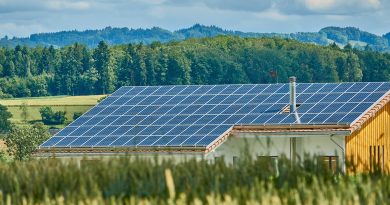The Rise of Residential Solar Panels
As the world embraces renewable energy sources to combat climate change and reduce reliance on fossil fuels, residential solar panels have emerged as a popular choice for homeowners looking to harness the power of the sun. In this blog, we’ll explore the rapid rise of residential solar panels, examining their benefits, installation process, financial implications, and environmental impact.
Benefits of Residential Solar Panels
Residential solar panels offer a myriad of benefits for homeowners. Firstly, they provide a sustainable source of energy, reducing reliance on non-renewable resources and lowering carbon emissions. Additionally, solar panels can significantly reduce electricity bills by generating power directly from sunlight. Moreover, installing solar panels can increase the value of a home, making it more attractive to potential buyers in the future.
Installation Process of Residential Solar Panels:
The installation process typically involves several steps. Firstly, a site assessment is conducted to determine the suitability of the property for solar panel installation. Next, the panels are mounted on the roof or ground, ensuring optimal sunlight exposure. Once installed, the system is connected to the home’s electrical grid, allowing for seamless integration with existing power sources.
1. Site Assessement
2. Panel Mounting
3. Electrical Connection
Financial Implications:
While the upfront cost of installing residential solar panels can be significant, homeowners can recoup their investment through various financial incentives and savings over time. These may include government rebates, tax credits, net metering programs, and reduced electricity bills. Additionally, solar panel financing options, such as leases and loans, make solar energy more accessible to homeowners with different budgetary constraints.
Environmental Impact:
One of the most significant advantages of residential solar panels is their positive environmental impact. By generating clean, renewable energy, solar panels help reduce greenhouse gas emissions and mitigate climate change. Additionally, solar energy production does not require water or produce harmful pollutants, making it a sustainable alternative to traditional fossil fuels.
Conclusion
As awareness of climate change grows and renewable energy technology advances, the popularity continues to rise. With their numerous benefits, including cost savings, energy independence, and environmental sustainability, solar panels have become an attractive option for homeowners around the world. By investing, homeowners can not only reduce their carbon footprint but also contribute to a cleaner, more sustainable future for generations to come.
Whether you’re looking to reduce your carbon footprint, save money on electricity bills, or increase the value of your home, SolarClue has the expertise and resources to help you achieve your goals. With our easy-to-use platform and dedicated support team, going solar has never been easier.
So why wait? Take the first step towards a brighter, more sustainable future for your home with SolarClue. Explore our range of residential solar panels today and discover the power of solar energy for yourself.



